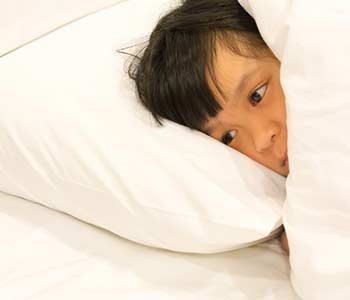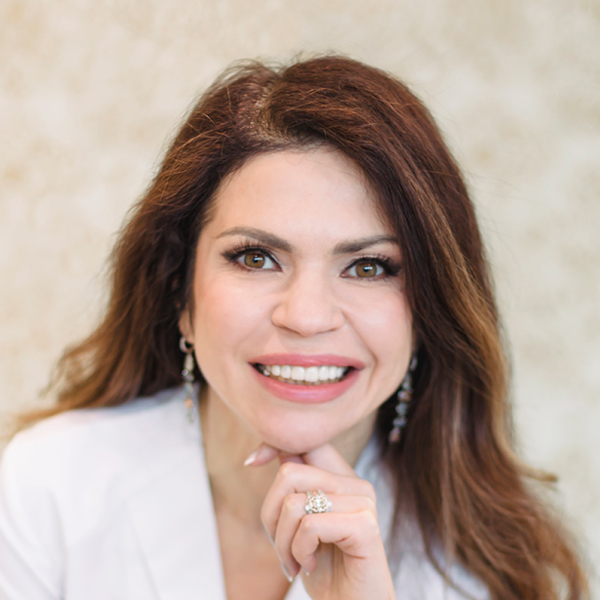

26
Feb
Better health through better sleep: Safe and advanced non-surgical sleep apnea treatment for kids in Glen Allen

Children with sleep apnea are six times more likely to suffer from Attention Deficit and Hyperactivity Disorder symptoms than their counterparts without sleep apnea, according to a study conducted by University of Arizona Tucson researchers and published in the journal Sleep. Your providers of dentistry with a biological touch, Dr. Olivia Hart and her dental team, see many kids who have sleep apnea but were formerly thought to have ADHD. This common condition characterized by pauses in breathing during sleep is frequently misdiagnosed or underdiagnosed in children.
Dr. Hart and her team offer Glen Allen Sleep Apnea Treatment for Kids that is based on thorough and accurate diagnostics and is built upon extensive training and the latest understanding of sleep apnea and airway health. Olivia Hart DDS & MD, IABDM, has brought her continuing education from mini-residencies on sleep disorders, sleep apnea, and integrative medicine and dentistry to Virginia Biological Dentistry. Patients can benefit from several new, effective, and safe treatments for pediatric sleep apnea at her office in Glen Allen VA.
Sleep apnea in childhood – the difference
Adults and kids with sleep apnea have poor sleep quality because their rest is constantly interrupted; however, unlike adults who tend to be sluggish and groggy when they don’t get sufficient sleep, tired kids are more likely to be hyper and inattentive. A lack of focus often leads to “acting out” and poor school performance. Over the longer term, sleep apnea without treatment gets worse and contributes to a number of medical conditions that damage the quality of children’s life, from high blood pressure to diabetes.
Proper treatment starts with a sleep study. The first line of defense may be to remove enlarged adenoids or tonsils that are a common cause of pediatric sleep apnea because they obstruct the airway. Sleep apnea symptoms such as snoring can also cause tonsils to become inflamed and enlarged. Virginia Biological Dentistry offers many advanced, non-invasive treatments to resolve sleep apnea symptoms, gently.
REQUEST AN APPOINTMENT
Oral appliances
Customized appliances that alter the position of the jaw and tongue, or even “remodel” the structures responsible for airway obstruction, are helpful to safely and non-invasively treat sleep apnea in children and adolescents.
- Advanced Lightwire Functionals – ALF appliances use light energy to reposition teeth and to resolve skeletal problems. So, they are an unobtrusive orthodontic treatment as well as a means of correcting imbalances caused by oral habits; for instance, a narrow upper arch may be transformed into a rounded arch with more room for the tongue and an open airway.
- Myobrace® – Another “pre-orthodontic treatment,” this approach combines a series of removable dental appliances with daily exercises to improve breathing, muscular function, and tongue postures. Myobrace® therapy unlocks your child’s growth potential, encouraging natural straightening of the teeth and healthy function.
Advanced surgical alternatives

Dr. Hart applies the NightLase® device to the soft palate and surrounding oral mucosal tissues. Equipped with a non-ablative or “non-wounding” laser, NightLase® is safely and precisely directed to the treatment area. Energy from the laser causes collagen proteins to contract, which results in tightening of the lax tissues that block the patient’s airway. NightLase® laser pulses treat delicate tissues without undesirable side effects, yet they are powerful enough to effectively heat and penetrate mucosal tissue.
In just two “lunchtime” sessions, NightLase® patients featured in a study published in The Journal of the Laser and Health Academy reported a 30 percent improvement across all indicators of sleep quality.
Ankyloglossia or tongue tie is a common congenital problem caused by an overly short or tight band of tissue or lingual frenulum that “ties” the tongue to the floor of the mouth and restricts its motion. Since the tongue is important to orofacial development, abnormalities have many harmful consequences, including a collapse of the upper airway during sleep. Associated “mouth breathing” also contributes to enlarged tonsils that can block the airway. Whereas the tongue tie affects the floor of the mouth, abnormalities associated with the tissue that connects the lips to the gums also lead to functional problems. Dr. Hart offers a quick, well-tolerated alternative to surgical treatments for lingual and labial frenulum irregularities: laser frenectomy. Historically, frenectomies involved cutting fibrous bands with scissors or scalpels. Laser therapies for lip and tongue ties are generally associated with comfortable and efficient healing.
Call (804) 381-6238 to schedule an appointment at Virginia Biological Dentistry.










